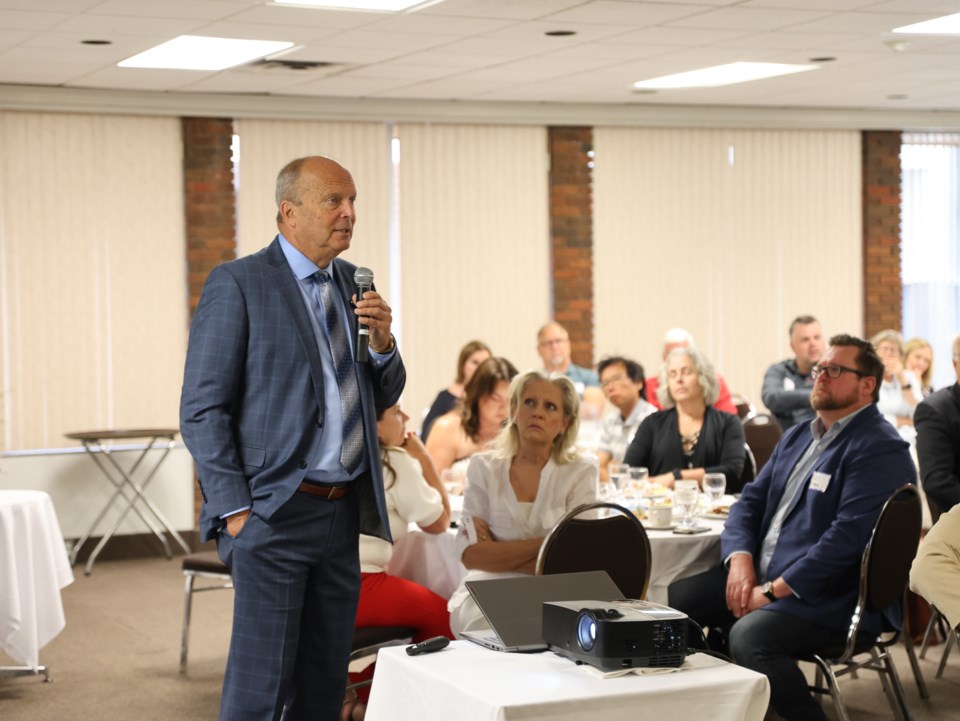THUNDER BAY — City manager John Collin says he doesn’t want to see a scenario here where people looking to buy a home face the same situation as one of his children.
“I have four sons, one of them is in Kitchener-Waterloo — the first of my sons who managed to buy a house,” he said while answering questions posed by civic leaders at a recent Thunder Bay Chamber of Commerce luncheon.
“Very small, 900 square feet or so, built in the 1960s, hasn't been touched since … so we're talking about a fixer-upper, (a) small bungalow, and he paid 750,000 dollars for that house,” Collin continued.
“We can’t get there.”
Collin was the keynote speaker at Thursday’s chamber luncheon, where he touted the city’s smart growth plan — which has been presented to city council but is still in development — and the need to build and diversify the municipal tax base and attract more residents.
And while he said compared to municipalities down south, Thunder Bay does have affordable housing, but the rental market is another matter.
“Our rental market is comparable to everyone everywhere else and that's bad (and) the answer to that is build, build and build,” Collin said. “It's simple supply and demand economics 101.”
“If we have enough inventory here, prices will naturally either go down or at least stay constant.”
The city has been undertaking efforts to increase the housing stock. In the first four months alone, city officials said the total value of building permits issued was up nearly 75 per cent compared to the same period last year.
City hall has also touted the early success of its housing accelerator fund program and has taken steps officials said will improve access to truly affordable housing.
When answering questions at the luncheon, Collin also spoke of the need to, not only build more homes, but also to attract more business and industry, as the city’s tax base is heavily weighted towards residential properties.
“That's the reality that we don't have the industry and the commercial undertakings that we used to have in this city,” he said. “It's truly ironic because we're still regarded as a blue-collar town.”
“We don't have a whole lot of blue-collar left.”
Having that commerce and industry to support any growth in population is crucial, Collin said.
“It's through those jobs that people will want to come here or will want to stay here,” he said.
“So as much as population growth is important, we can't get there from here without having significant growth in our industrial and commercial base.”
And while the need for growth looms large, he said, it will take time. Collin said they’re aiming to see three per cent growth yearly by the latter years of the decade-long plan.
Collin told reporters after the lunch-time question-and-answer period that he feels the plan is solid enough to stand up to geopolitical uncertainties over time, such as high tariffs and inflation.
“We need to remember this is a 10-year plan,” he said. “If the trade war causes a recession or causes other challenges, it's not going to be for the entire 10 years right?”
“So, we'll have to make adjustments, but it's a 10-year plan, so I'm not too worried about the hiccups along the way so long as we stay focused.”
